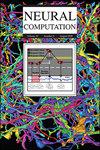配电回归中变压器的归纳分析。
IF 2.7
4区 计算机科学
Q3 COMPUTER SCIENCE, ARTIFICIAL INTELLIGENCE
引用次数: 0
摘要
近年来,基于变压器架构的模型得到了广泛应用,并已成为深度学习领域的核心工具之一。为了进一步提高性能,人们围绕其应用提出了许多成功而高效的技术,如参数高效微调和高效缩放。然而,这些策略的成功始终缺乏严谨数学理论的支持。为了研究变换器和相关技术背后的内在机制,我们首先提出了一个以分布回归为动机的变换器学习框架,以分布为输入,将两阶段采样过程与自然语言处理联系起来,并提出了一种名为注意力算子的注意力机制的数学表述。我们证明,通过注意力算子,变换器可以在不损失信息的情况下将分布压缩为函数表示。此外,与卷积神经网络和全连接网络相比,利用我们新颖的注意力算子的优势,变换器在学习结构更复杂的函数方面表现出更强的能力。最后,我们获得了分布回归框架内的泛化约束。通过理论结果,我们进一步讨论了大型语言模型(LLM)中出现的一些成功技术,如及时调整、参数高效微调和高效缩放。我们还在新颖的分析框架内提供了这些技术背后的理论见解。本文章由计算机程序翻译,如有差异,请以英文原文为准。
Generalization Analysis of Transformers in Distribution Regression
In recent years, models based on the transformer architecture have seen widespread applications and have become one of the core tools in the field of deep learning. Numerous successful and efficient techniques, such as parameter-efficient fine-tuning and efficient scaling, have been proposed surrounding their applications to further enhance performance. However, the success of these strategies has always lacked the support of rigorous mathematical theory. To study the underlying mechanisms behind transformers and related techniques, we first propose a transformer learning framework motivated by distribution regression, with distributions being inputs, connect a two-stage sampling process with natural language processing, and present a mathematical formulation of the attention mechanism called attention operator. We demonstrate that by the attention operator, transformers can compress distributions into function representations without loss of information. Moreover, with the advantages of our novel attention operator, transformers exhibit a stronger capability to learn functionals with more complex structures than convolutional neural networks and fully connected networks. Finally, we obtain a generalization bound within the distribution regression framework. Throughout theoretical results, we further discuss some successful techniques emerging with large language models (LLMs), such as prompt tuning, parameter-efficient fine-tuning, and efficient scaling. We also provide theoretical insights behind these techniques within our novel analysis framework.
求助全文
通过发布文献求助,成功后即可免费获取论文全文。
去求助
来源期刊

Neural Computation
工程技术-计算机:人工智能
CiteScore
6.30
自引率
3.40%
发文量
83
审稿时长
3.0 months
期刊介绍:
Neural Computation is uniquely positioned at the crossroads between neuroscience and TMCS and welcomes the submission of original papers from all areas of TMCS, including: Advanced experimental design; Analysis of chemical sensor data; Connectomic reconstructions; Analysis of multielectrode and optical recordings; Genetic data for cell identity; Analysis of behavioral data; Multiscale models; Analysis of molecular mechanisms; Neuroinformatics; Analysis of brain imaging data; Neuromorphic engineering; Principles of neural coding, computation, circuit dynamics, and plasticity; Theories of brain function.
 求助内容:
求助内容: 应助结果提醒方式:
应助结果提醒方式:


